

Sign in to your Collider account
Summary
- Collider's Perri Nemiroff sits down with writer-director Mark Anthony Green and the cast of Opus at the 2025 Sundance Film Festival.
- Opus is A24's new mysterious thriller about a mega-pop star who returns to the scene after being MIA for decades.
- In this interview, Green, Ayo Edebiri, John Malkovich, Juliette Lewis, Stephanie Suganami and Murray Bartlett discuss how they tapped into their characters, Green's inspiration for the film, having fun on set, and more.
A masterpiece is about to be unveiled in A24’s starry horror venture Opus. Journalism is not for the faint of heart, and Ayo Edebiri’s character, Ariel Ecton, knows it best. Presented with the opportunity to get the scoop of a lifetime, Ariel accepts an invitation to the remote compound of legendary pop star Alfred Moretti (John Malkovich). Last seen in the public eye 30 years ago, Moretti is about to make the ultimate comeback with his latest creation. But with a cult of sycophants breathing down on Ariel’s neck and fellow competitive journalists who want a piece of the story, the young journalist is caught up in Moretti’s sinister plot.
At this year's Sundance Film Festival, Collider’s very own Perri Nemiroff had the opportunity to chat with director Mark Anthony Green and cast members Edebiri, Malkovich, Murray Bartlett, Stephanie Suganami, and Juliette Lewis at our media studio at the Rendezvous Cinema Center. During their conversation, the cast and creator discuss Green’s journalistic roots that seeped through the movie, each character’s strengths and weaknesses, and why it’s important to have fun watching movies. You can watch the full interview in the video above or read the transcript below.
‘Opus’ Explores an Epidemic That’s Bigger Than Entertainment
"I've been given such a wonderful gift."
PERRI NEMIROFF: You're going to get one of my absolute favorite questions to ask about writing a screenplay because I love the fact that there are so many curious ideas and themes you explore here. Can you tell me what idea number one was, the thing that started this all?
MARK ANTHONY GREEN: I'm really interested in interrogating tribalism. It feels like an epidemic. It's not just an American epidemic, and it's bigger than entertainment. That was really the "why," the thing that I set out. And I'm a smart ass, so everything is fun and funny.
And now, did you have a break story moment, something you came up with along the way that made you think, “This feels whole now, and it's ready to be turned into a feature film?”
GREEN: I'm not just saying this because they're sitting next to me, but it was really more the people. I watched The Bear a couple of weeks before it came out—I used to work at GQ, and I got screeners—and I was like, “Holy shit, she's incredible. She'd be..." What's your name?
AYO EDEBIRI: Liza Colón-Zayas. [Laughs]
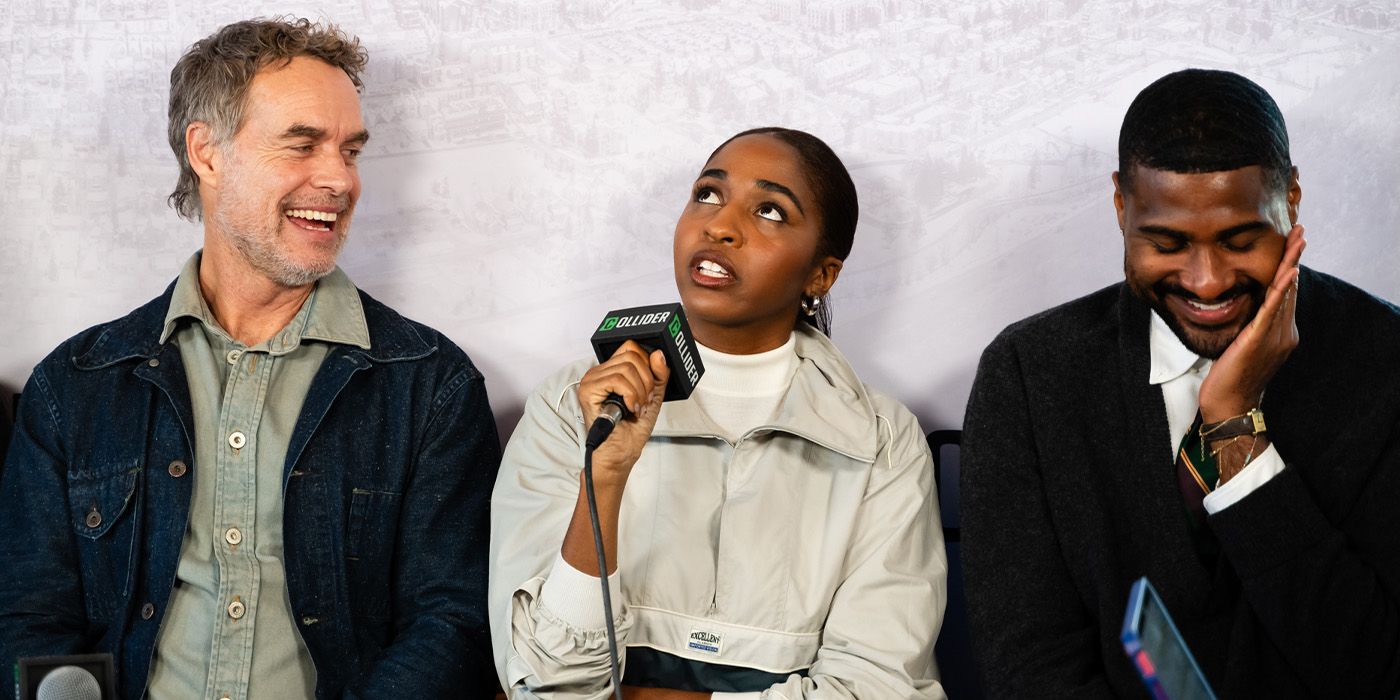 Image by Photagonist
Image by Photagonist
GREEN: You know what I mean? So, that is so inspiring and exciting. And John, watching all of his films before we met, that really felt like… I know you're asking about the story phase, but I literally stopped writing it, like, two days before I turned it in and edited it. I feel like I've been given such a wonderful gift to constantly be working on it and it moving. Then you have Murray and Juliette and Stephanie, and you meet them, and they have an idea, and that changes it. I feel like it's at its best when I'm with them.
How Mark Anthony Green's Journalism Background Factored Into 'Opus'
"A lot of it is in the subtext."
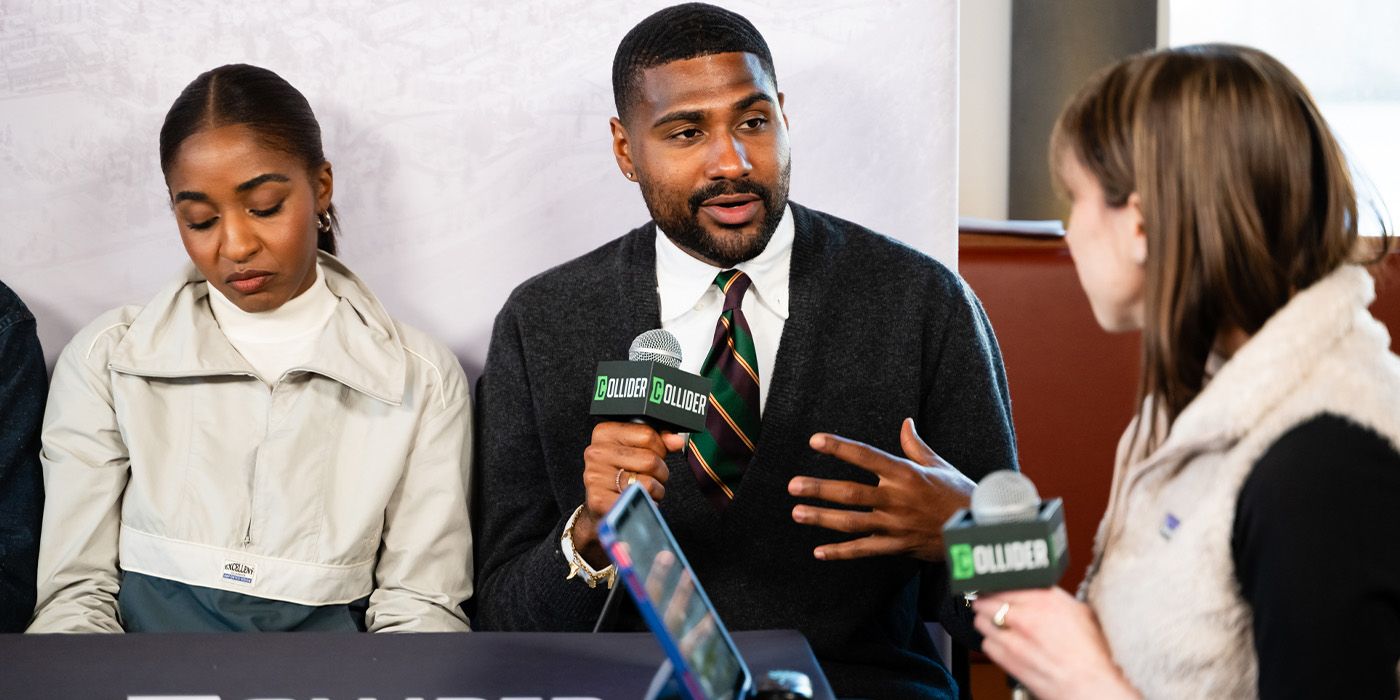 Image by Photagonist
Image by Photagonist
I wanted to follow up on the GQ element of your career because I am obviously fascinated whenever I meet a filmmaker with a journalism background. What was it about your experience in that field that maybe signaled to you the lead character in this movie should be a journalist, and are there any aspects of your own personal experience that we can see in her character?
GREEN: You know what? I used to say no, which is tough. "I got to GQ. They were super supportive. Whatever." Then I had people like Elvis Mitchell, who's known me for forever and knows so much about film and is so smart, and he went through 50 things I had never thought of. I felt naked. And I think a lot of it is in the subtext. Again, Ayo's performance as the journalist, I have a big imagination, but I think what she was able to do with Ariel feels so full and special to me. I can't look at that and be like, “That was me.”
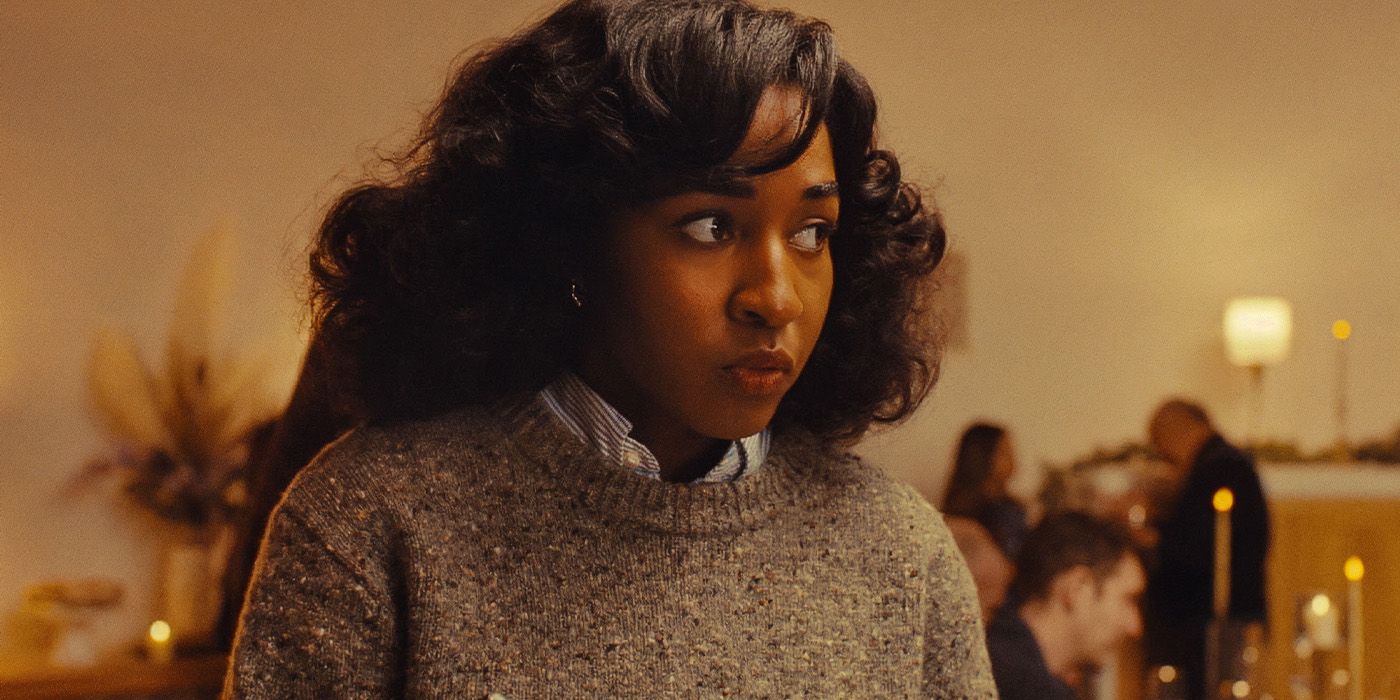 Image via Sundance Institute
Image via Sundance Institute
To start to teeter into characters now, I'll begin with Moretti first. Mark Anthony, I was reading in our press notes that you came up with "101 facts, half-truths, and rumors about Moretti." I know we hear some of them in the movie, but can you maybe share some that didn't make the finished cut but still informed who he is in the film?
GREEN: One that's kind of fun is there's a moment where Ariel hears all of them talking about this wonderful thing about Moretti and this thing he did. So, I had a lot of the weird things that he collects, one of them being Freddie Mercury's teeth, which is in the film, but there was a long list of other pop stars, big celebrities, a Fabergé egg collection, and other creepy things. That was cool. But again, when I gave that to John, and he read it, he really is a director's actor. He's like, "I'll read whatever you say, and I'll watch whatever you say." And I could tell that he internalized the macro thought of it, which is, this is a human—John actually kind of lives like this [laughs], so he didn't have to reach that far—being that is limitless, that knows no border, boundary. Whatever curiosity or thing that he finds creative, interesting—his group of friends—the whole thing... The writing of it was great, but then, when it got into his hands, it became real.
“You’re a Figure in Someone Else’s Dream”
The cast discusses how they tapped into their characters.
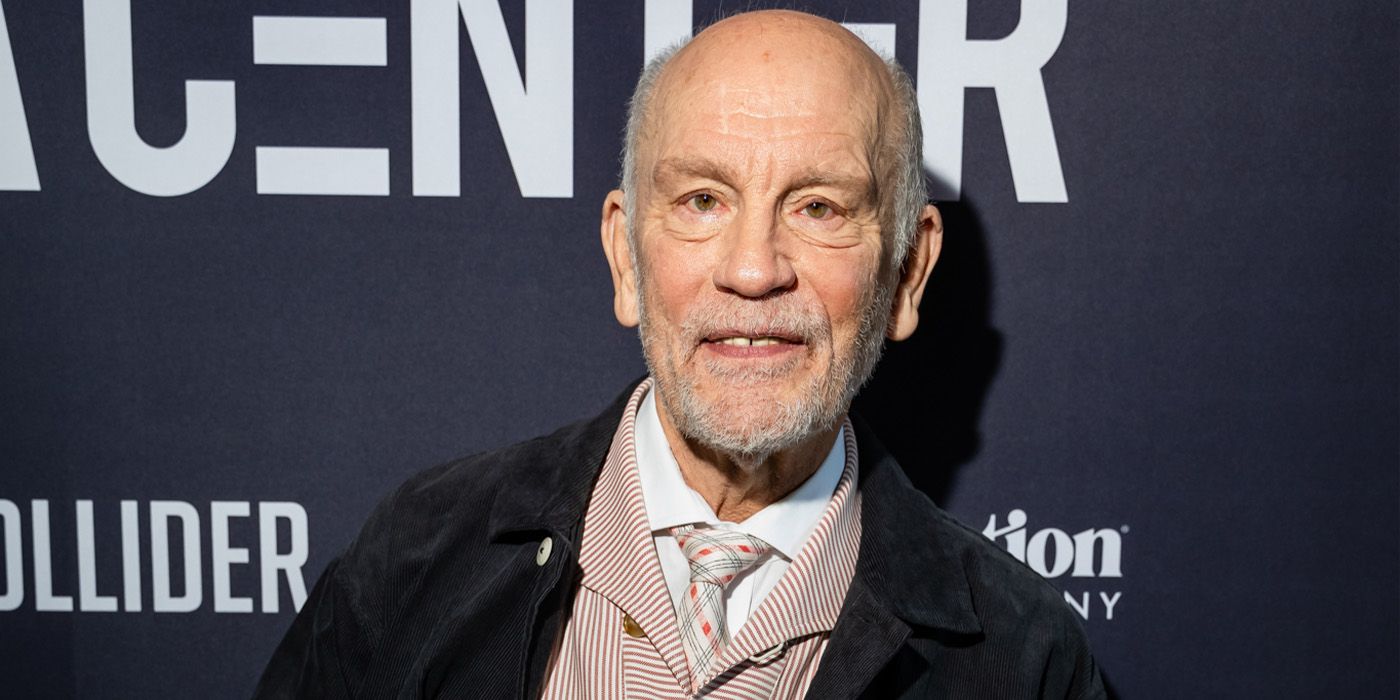 Image by Photagonist
Image by Photagonist
John, I'm going to jump your way now. Did you have an “aha” moment with this character, something that you did or came up with in prep that made you say, “I fully get who Moretti is now?”
JOHN MALKOVICH: I don't know that I have those kinds of moments. The way I look at my job, and most especially my job as a film actor, is you're a character—you're a figure in someone else's dream. What you have to do is sort of get off yourself, and start to look at that dream, and then start to analyze that dream. “What is this? Why is it like that? Is it as fully like that as it should be?” When I get some material like this extra information, let's call it, about Moretti, that's very interesting, but the script is the thing. That's what has to be communicated. You have to try to analyze the dream in which you're a figure. That's really what you do.
The rest of you play characters who go to Moretti’s estate. In an effort to avoid asking you to tell me about your characters, here's how I'll get at it - can you each tell me what your character's greatest strength is, something that will help them survive this whole situation, but I also want to know what their greatest weakness is, the thing that could do them in at Moretti's estate?
JULIETTE LEWIS: First, can I just say, two days ago, I was being a girl named Camille in another movie. Not because my character in this one is forgettable. She was so strong and so strongly written, but her greatest strength is that she could convince herself of anything. She is a great actress with a capital “Tress”. I based her on a blend of a couple of tabloid-y kind of gals. It was really fun to play a woman really put together, very assertive, and who's never going to show anything, which is also a weakness.
It's pretty damn cool seeing you at this film festival with two films that are so wildly different.
LEWIS: Thank you for that. Extremely different.
GREEN: I heard they're renaming it Juliette Fest.
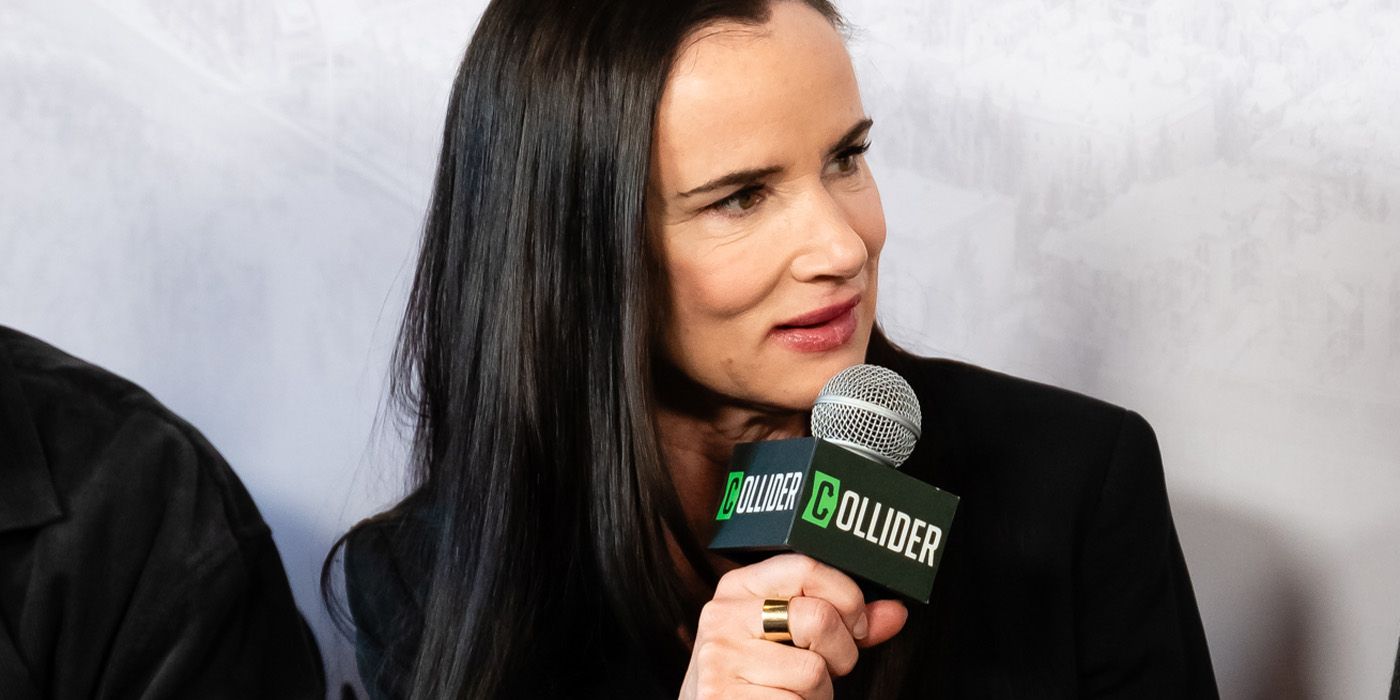 Image by Photagonist
Image by Photagonist
Who wants to jump in next? Strength and weakness.
STEPHANIE SUGANAMI: I think that Emily's strength is that she's kind of in her own world, and she's happy to be there. She understands it's really important for her to be there, but she's kind of just there for herself. I think that's also her weakness because she's completely oblivious to anything that's going on because she's just a little self-involved.
MURRAY BARTLETT: I think my character believes that he has a strong kind of allyship with power, so he's like, "I'll be fine." I think he has a really strong belief that he's important and that he'll always be fine because of his powerful beliefs and he has powerful friends, and they will always take care of him. He's like, "I'm going to be fine." He's the sort of master of his own game, he believes. I think that’s also his great weakness because it's not necessarily the case.
EDIBIRI: I'm not sure. I don't know. I think she just wants to be a good journalist. Ariel is approaching this space, not so much as herself as a human being but as a journalist. She is very inquisitive and very conscious of others. But also, I think that that sort of consciousness of others is, in a way, a weakness. Everybody's is sort of the same thing. Low emotional points are where she's like, “Nobody believes me,” or, “Nobody's sees me.”
Even Emmy Winner Ayo Edebiri Struggles With Confidence
She discusses what helped inform her performance, from horror movies to the ensemble cast.
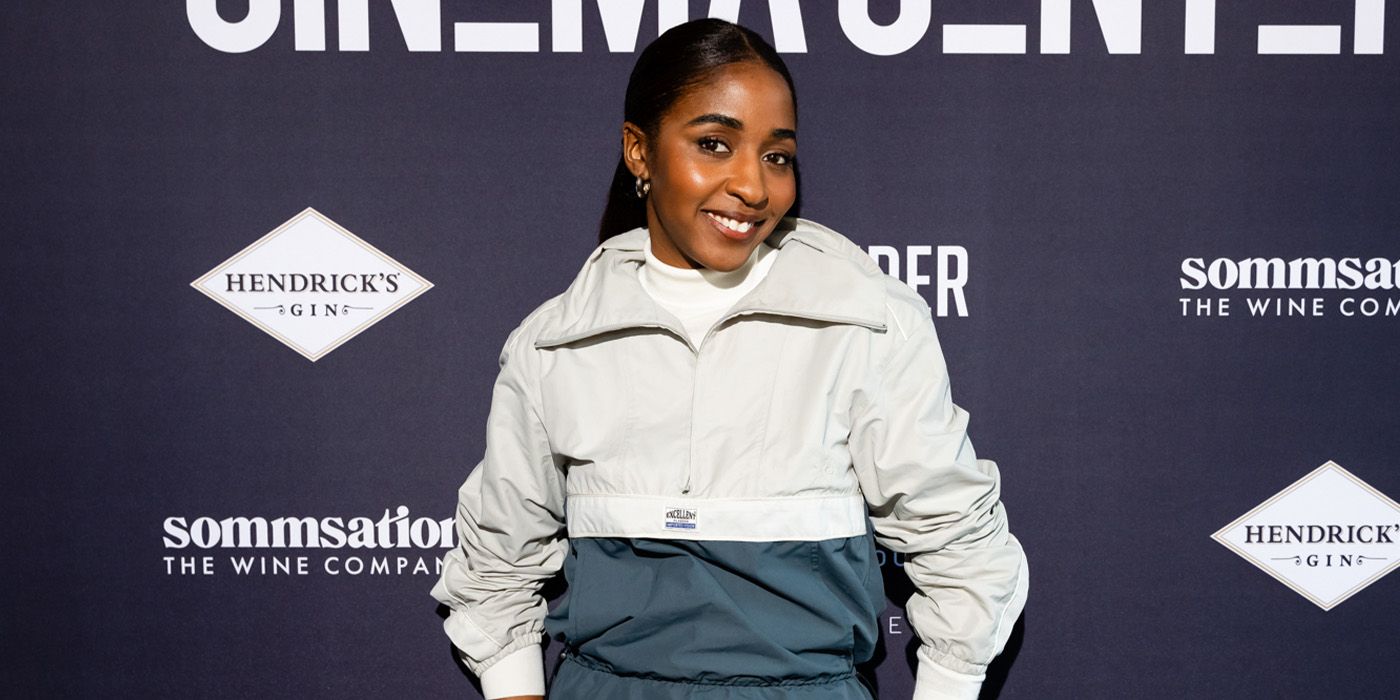 Image by Photagonist
Image by Photagonist
I do have a really big question for you based on something Mark Anthony said in our press notes. I'll also emphasize you're friggin' phenomenal in this movie. Obviously, you have an Emmy to your name and so many other accomplishments ...
EDEBIRI: Bought that. Bought the rest. [Laughs]
... but the coolest thing for me was walking out of this movie being like, “Movie star! Movie star!” You're an excellent anchor for the film.
Mark Anthony was talking about how good you are at keeping your character grounded, and he said, “The more nuance you get with a character, the harder it is to land that plane. Luckily, I got to do that with Ayo, who can land anything.” Ayo, from your perspective, was there a single moment in this movie that was toughest for you to land or find the pitch-perfect tone for?
EDEBIRI: All of it! I don't know. I never feel confident in anything ever. But I think the moments where it was with the group because I was thinking of Ariel's headspace and insecurity, but trying to project security. Now I'm just like, “Maybe the stuff where you guys were all hanging out in the room drinking," and I was like, "What's up? Did I miss the invite?” [Laughs] No, I don't know. We talked a lot about horror movies and thrillers and different movies that Mark sent me to watch or we just enjoyed growing up. I think, especially as Black people, you watch those movies a lot of the time, and you're like, “Leave! Get away! Go away!” Obviously, Get Out is one that you think of, but even when you’re just watching the movie, you're like, “Girl, turn around. It's as simple as that." So, we would have a lot conversations about believability.
Also, if this girl is a journalist, and I think it helps that she is a bit green, but she is still a journalist, she is still inquisitive. Where are those questions leading her? Where are they not? Then, where does that play when it's like everybody around you is sort of more experienced, or they're like, “Haven't you been to a celebrity's compound yet?” And you're like, “No, I haven't! So, I don't know if this is really crazy or if this is how it goes. Those planes, helicopters, various airborne vehicles felt sometimes …
You landed them. I mean that sincerely.
22:26
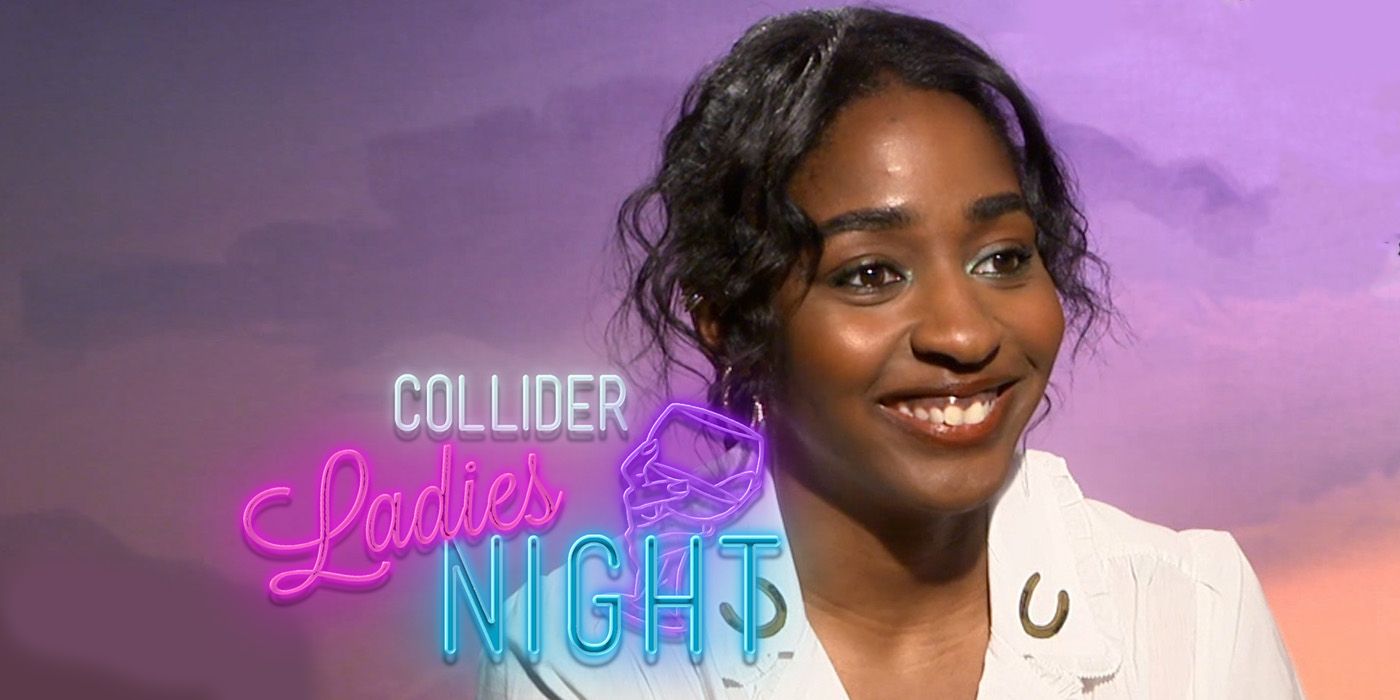
Related
Mark Anthony Green Prioritizes Fun in Filmmaking
"There has to be way more honey with the medicine."
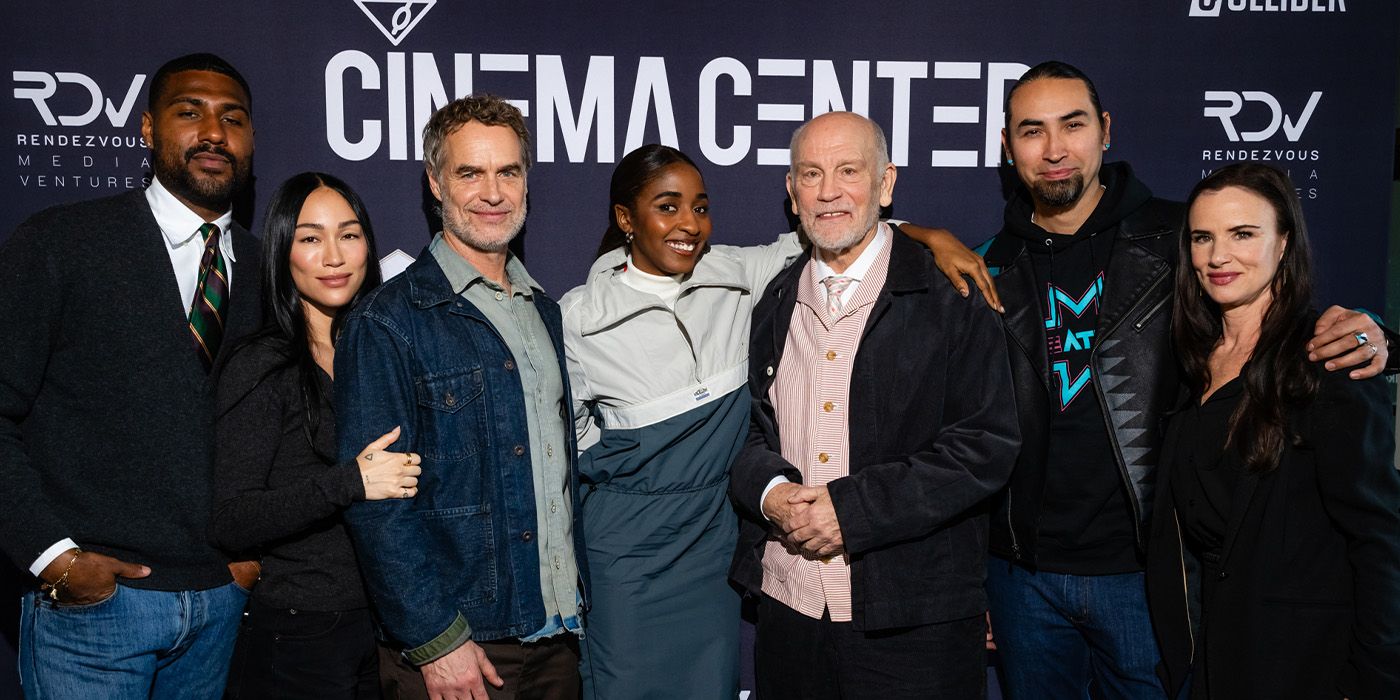 Image by Photagonist
Image by Photagonist
Mark Anthony, there's another thing you said in your director's statement, and it's just something that hit home for me. It’s a word you apply to your movie. It's a word that I love to apply in my reviews of movies, but it's one that's kind of acquired a negative connotation. It's the word “fun.” Why was it important for you for this movie to serve other purposes but also, at its core, be fun?
GREEN: I think there has to be way more honey with the medicine. I think the ratio is a little off right now. That's something that we all talked about. Again, I can't stress this enough, with every person that's sitting to my right, striking a balance of believability when it's time for me to be afraid and all of the things, but it's so visually wonderful seeing them do the things that they're doing. Then the moments where there are actual jokes, nothing has made me feel like a better writer than to have such talented people delivering. I'm like, “Oh, I'm good.” And it's not me, but I'll take it. So, we really, really want people to have a conversation at the end of this film. The more you have fun throughout that process, the more of a ride it feels, the better the chance we have that people have this conversation. That our sincere hope.
Special thanks to our 2025 partners at Sundance including presenting partner Rendezvous Capital and supporting partners Sommsation, The Wine Company, Hendrick’s Gin, neaū water, and Roxstar Entertainment.
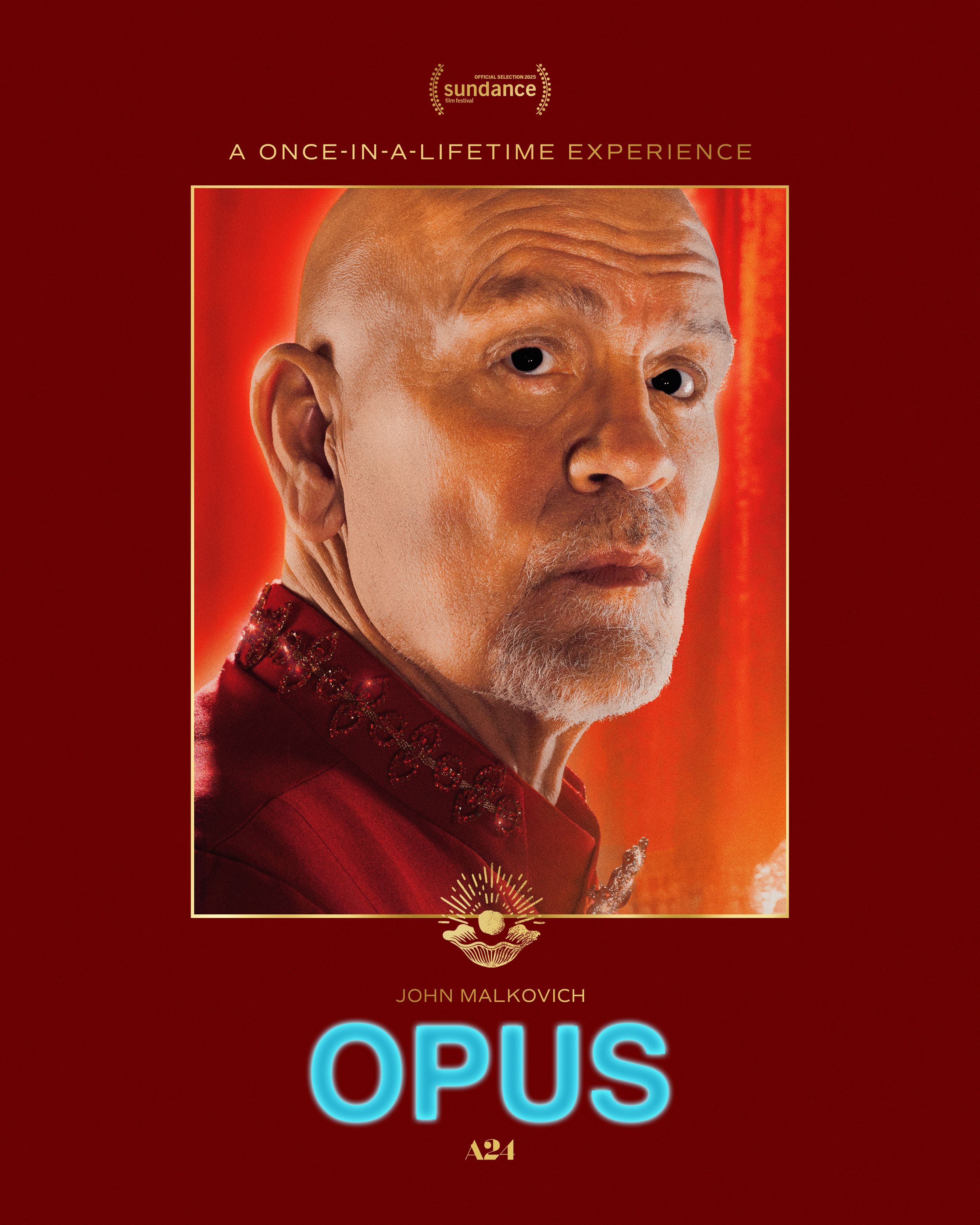
Opus
Release Date March 14, 2025
Runtime 103 minutes
Director Mark Anthony Green
Writers Mark Anthony Green
Producers Nile Rodgers, Charles D. King, Joshua Bachove, The-Dream, Brad Weston, Poppy Hanks
Cast
Opus arrives in theaters on March 14th.

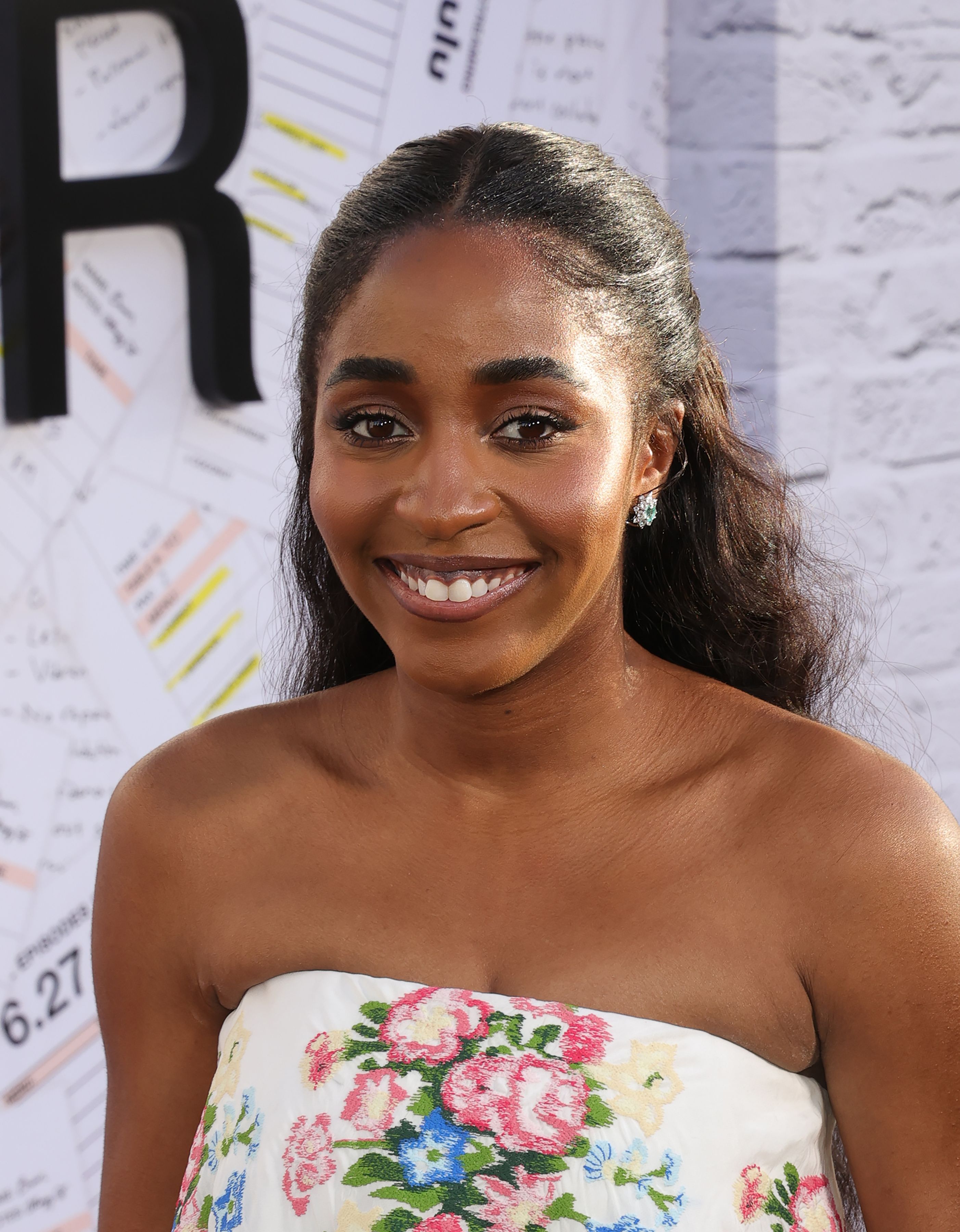
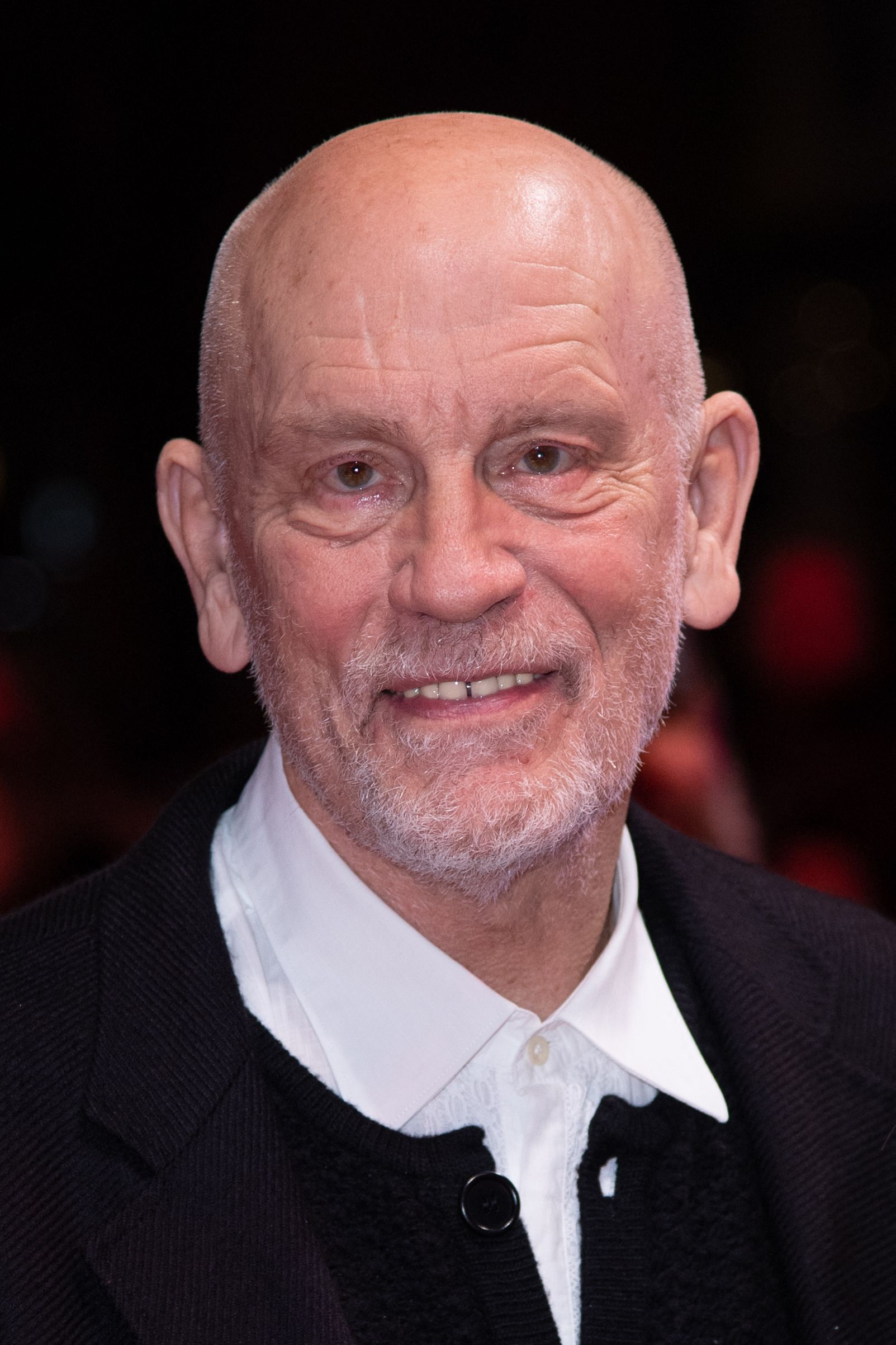
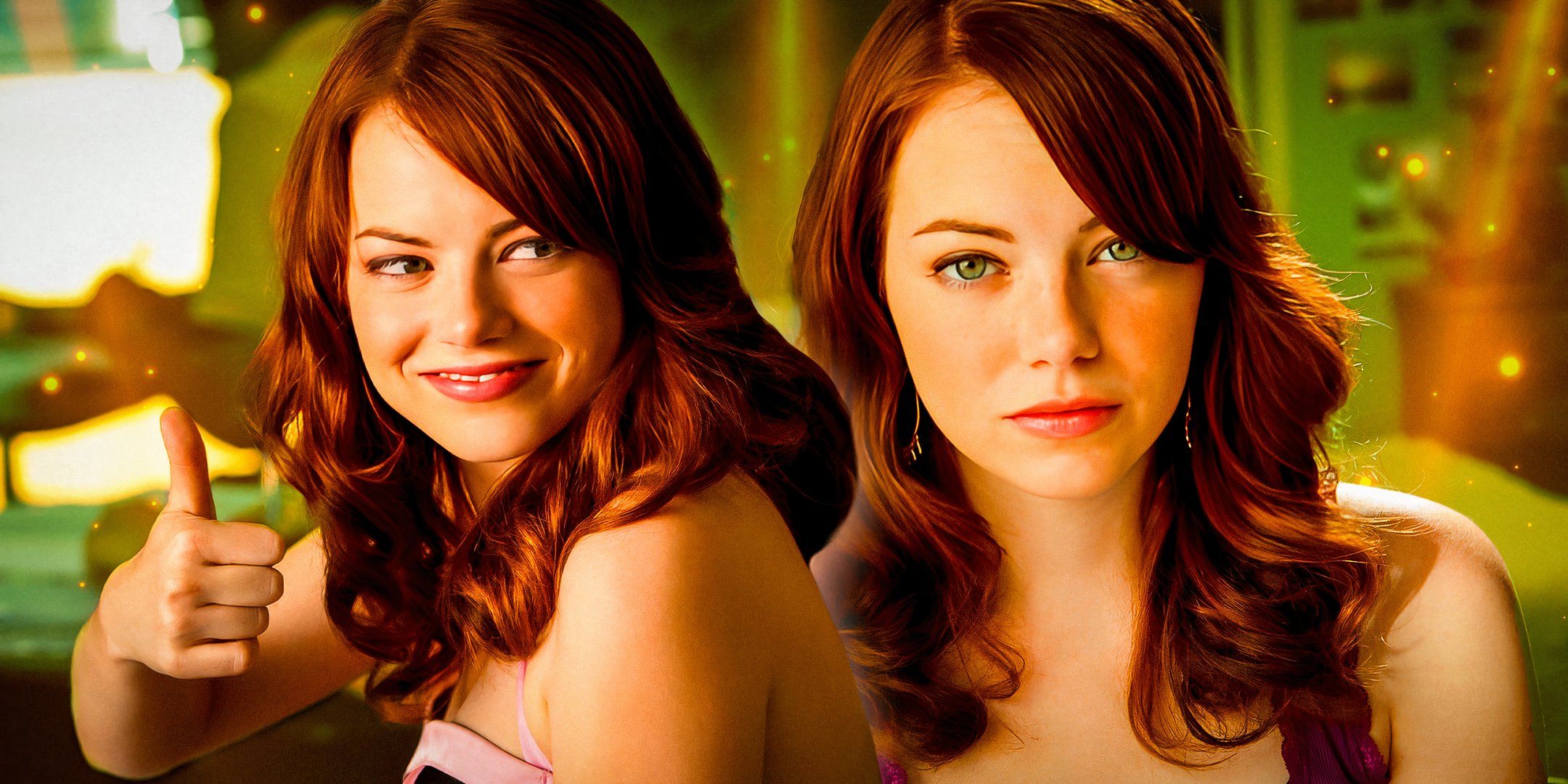
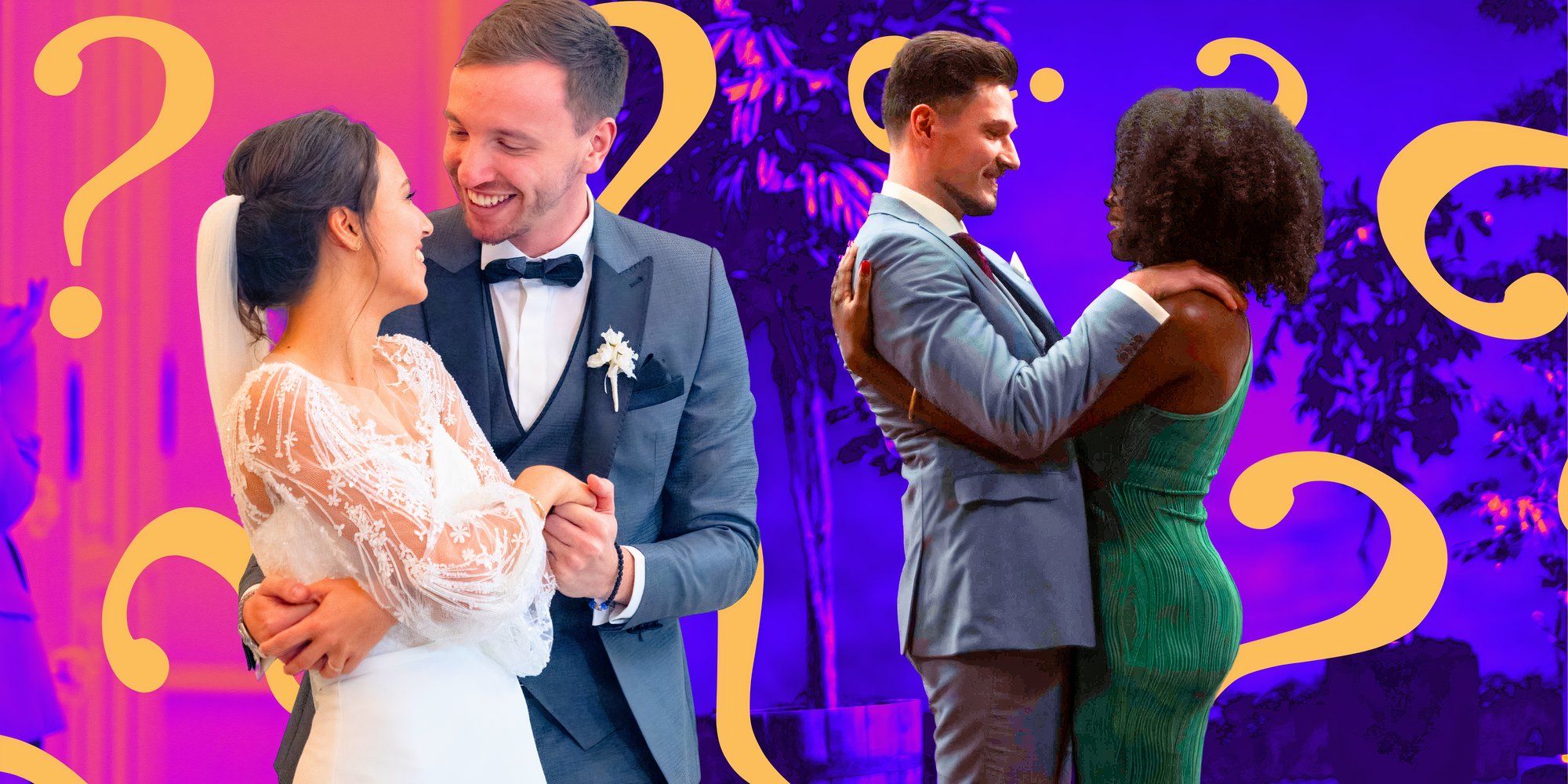
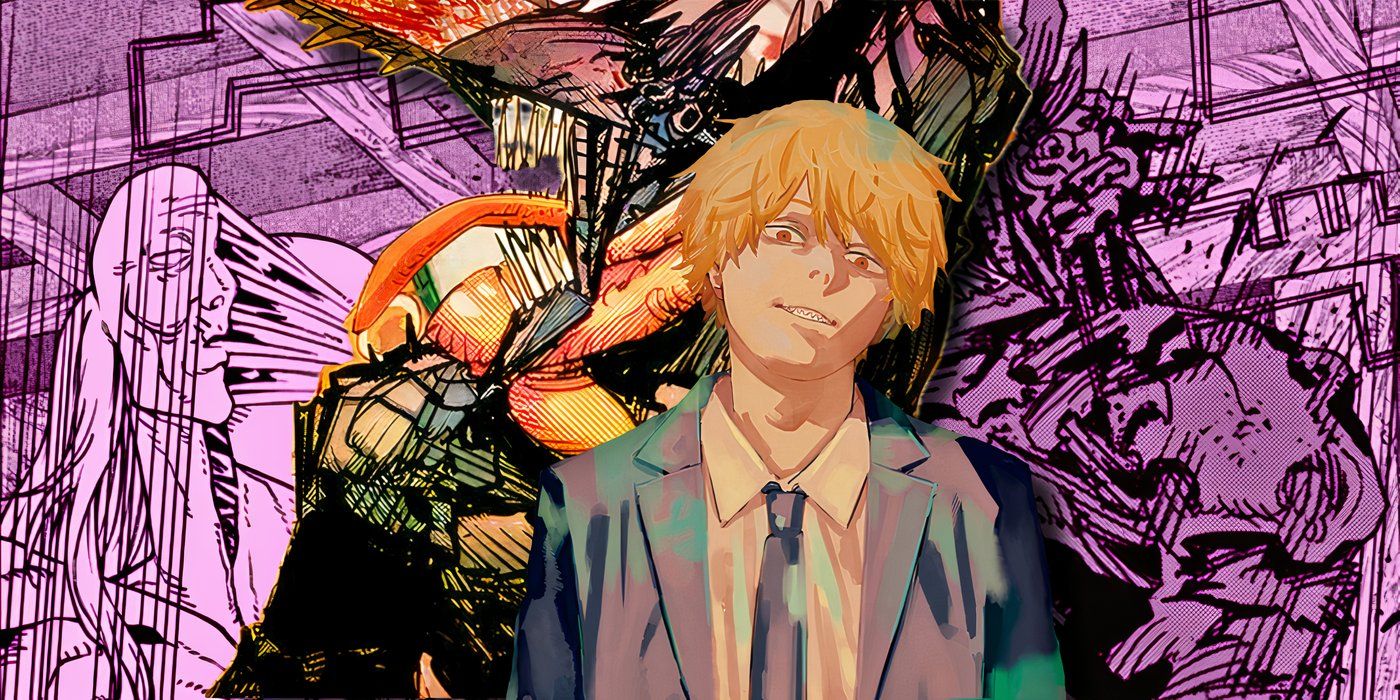





 English (US) ·
English (US) ·